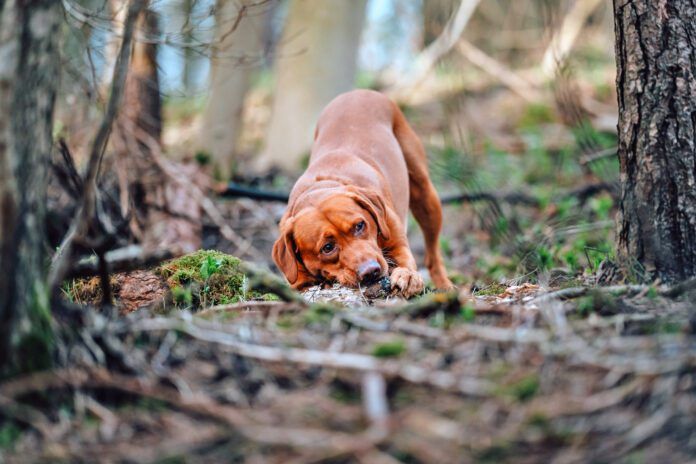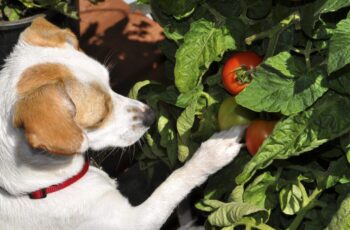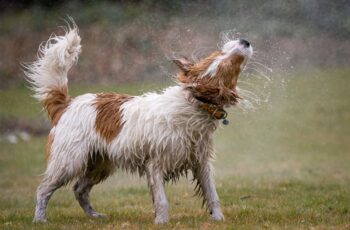
Credit: Mike Linnane 500px | Getty Images
Food poisoning is an illness caused by food contaminated with bacteria, viruses, or parasites. It may seem like dogs are immune to food poisoning, as they often eat things that would land us in the hospital, but they are susceptible to many of the same pathogens that impact humans. The difference is that, in a healthy adult dog, a larger pathogen load may be required to induce illness. This makes dogs seem impervious to food poisoning compared to people. It’s a common misconception.
Symptoms of Food Poisoning in Dogs
Symptoms of food poisoning in dogs include:
- Vomiting
- Diarrhea
- Bloating
- Loss of appetite
- Lethargy
- Dehydration
Depending on the pathogen consumed, some dogs also may show neurological signs:
- Tremors
- Loss of coordination
Preventing Food Poisoning in Dogs
Clearly, protecting dogs from food poisoning means keeping things they shouldn’t eat out of their mouths.
Garbage and compost should be kept out of reach as they pose multiple hazards. Cooked bones can shatter and perforate intestines, and corn cobs are a common cause of intestinal obstruction.
However, the bacteria and fungus present in rotting food poses the largest risk for food poisoning. As meat spoils, bacteria such as Salmonella, E. Coli, Listeria, and C. botulinum multiply. These bacteria produce toxins that are harmful to dogs and persist in the spoiled food even if the bacteria are killed.
Because of this, dogs should not eat expired foods or meat, even cooked. Like meat, rotting fruits and vegetables harbor harmful bacteria, but they also provide a perfect substrate for mold growth. Some molds produce mycotoxins, which can cause a variety of symptoms, from gastrointestinal (GI) upset to neurological issues, depending on the type and quantity ingested.
Dead Animals
Dead animals contain dangerous bacteria, viruses, and parasites that can be incredibly harmful to your pet as well. Be sure to keep your four-legged friend away from any dead and decaying items roadside, in the woods, or in the yard.
Feces, which many of our furry companions consider to be a delicacy, contains high levels of potentially harmful bacteria, such as Clostridium and Giardia, but it can also have parasites, such as hookworms, roundworms, and whipworms. Regardless of the species of origin, consumption of fecal matter can be the cause of an upset stomach in dogs and should be prevented if possible.
Harmful Foods
Recalled dog food and treats can also cause food poisoning in our pets. Diets may be recalled if they are found to have bacterial contamination, mold, or toxins present. While rare, recalls have occurred for all formats of food and treats, so be sure to keep an eye out for announcements from the Food and Drug Administration (FDA).
Raw and undercooked meat, eggs, and unpasteurized dairy products can also be a source of harmful bacteria. For dogs on a raw diet, food or ingredients should be high-quality and fresh from a reputable source. Proper storage and handling practices are essential to ensure the health and safety of our companions.
Contact Your Veterinarian
If you suspect your dog has food poisoning, practice safety measures when handling and cleaning up after them, as the pathogens making them ill can also cause illness in humans.
Wearing gloves, sanitizing bedding and surfaces, and quarantining your sick pup will minimize the spread to people and other animals in the home. If your dog is showing signs of food poisoning, especially severe symptoms like persistent vomiting, diarrhea, bloody diarrhea, lethargy, or neurological signs, contact your veterinarian immediately and seek treatment.


